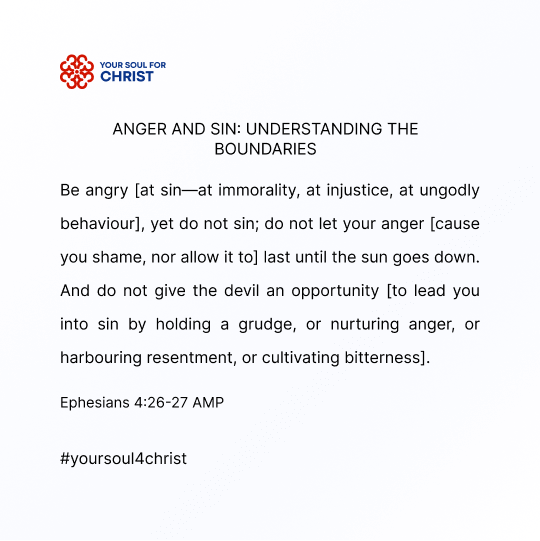“Be angry, and do not sin”: do not let the sun go down on your wrath, nor give place to the devil.
Ephesians 4:26-27 NKJV
Anger is an emotion common to all people. Being angry in itself is not a sin. It is simply an emotion, a God-given part of life as a human being. It is a natural reaction to threats or offences. Yet, anger is all too often expressed in ways that spread the harm around. Emotions are natural responses, yet yielding to sin in anger can lead to regretful consequences.
The Old Testament is full of references to God’s righteous anger or indignation against sin. We see this emotional aspect of God’s character also appear in the New Testament through Christ. Hence, it is important to answer this question of how we can learn to “be angry, and not sin”?
Be angry [at sin—at immorality, at injustice, at ungodly behaviour], yet do not sin; do not let your anger [cause you shame, nor allow it to] last until the sun goes down. And do not give the devil an opportunity [to lead you into sin by holding a grudge, or nurturing anger, or harbouring resentment, or cultivating bitterness].
Ephesians 4:26-27 AMP
Though we have seen that anger is not a sin in itself. However, the instruction that follows “…and do not sin”, tells us that there are conditions that annexed to its allowance or injunction. We must ensure that being angry does not lead us into sin. This can be possible only when the object of our anger is not because of any injury done to us, but sin.
We must guard against nurturing grudges, harbouring resentment, or allowing bitterness to fester. He that will be angry and not sin, let him be angry at nothing but sin. And this must be short lived. Being angry at sin enables us to address the wrongs in the world without compromising our faith. When we direct this emotion at immorality, injustice, or ungodly behaviour, we align with God’s will.
Likewise, we must ensure that we do not give room for the devil to utilize any of our members for its purpose. For God is not glorified in that, instead, sin will inevitably abound. The aim is to be Christ-like in our emotions, demonstrating love and grace even when angered. Short-lived anger at sin aligns with God’s desire for us. Ultimately, as Christians, we should strive to be slow to anger and quick to love.




